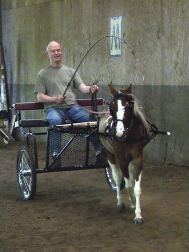
Mark Slavkin
Cultivating the Next Generation of Teaching Artists
Posted by Sep 14, 2011

Mark Slavkin
When we consider careers in the arts, I would like to see more attention paid and resources assigned to cultivate the next generation of teaching artists.
At the Los Angeles Music Center, teaching artists are central to our work helping schools gain capacity to provide quality arts education. Our teaching artists provide inspiration and support for teachers to develop the courage, confidence, and skills to engage their students in meaningful learning in and through the arts. As “real artists” the teaching artists bring a different sensibility than students may experience in a typical school.
In spite of the central role teaching artists play in our work and that of many other organizations around the country, it seems these opportunities are not showcased as part of the core curriculum in most college level arts programs.
How can young artists aspire to a career they do not know even exists? Even in those cases when students are introduced to the idea of becoming a teaching artist, it is often in the context of “service learning” as opposed to an integral part of the life of a professional artist.
Read More



























